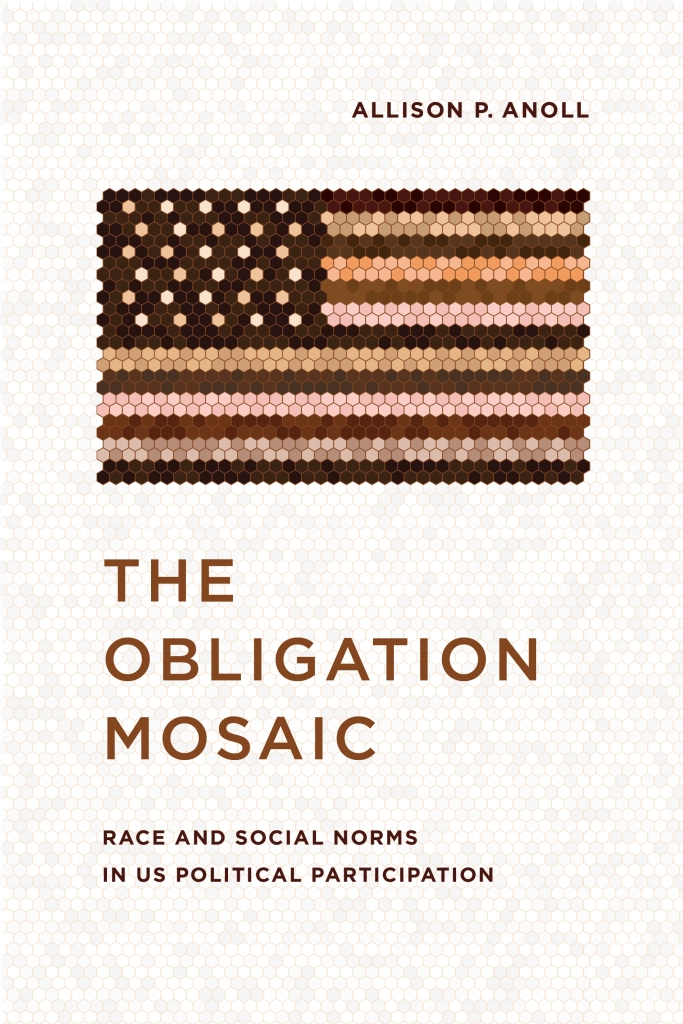I am an Assistant Professor of Political Science at Vanderbilt University. My research examines the social, structural, and psychological factors that shape why people engage in politics—and relatedly, how race shapes Americans’ political lives.
My award-winning book, The Obligation Mosaic, investigates how different racial communities develop norms of political participation. My additional works on the criminal justice system, U.S. racial context, and social movements are nationally and internationally recognized, appearing in outlets including the American Political Science Review, Journal of Politics, Perspectives on Politics, and British Journal of Politics.
My current scholarship investigates how parents introduce children to racial politics—and if historical and present-day social movements shape these choices.
Before graduate school, I was the Ameri*Corps VISTA for Community Engagement and Scholarship in William & Mary’s Office of Community Engagement. I have taught courses on American democracy in prisons and rehabilitation centers as well as at Stanford University, Vanderbilt University, and the College of William & Mary. I graduated with honors from William & Mary in 2009 with a double major in American Studies and Government, and in 2016 from Stanford University with a PhD in Political Science.

The Obligation Mosaic: Buy it on Amazon
What does civic duty mean? Does it mean the same thing across communities? Drawing on interviews, surveys, and experiments with Asian, Black, Latino, and White Americans, Anoll shows the obligations that bring people into the political world—or encourage them to stay away—vary by race. In the U.S., two norms define these obligations: honoring ancestors and helping those in need. Whether these norms lead different groups to politics depends on distinct racial histories and continued patterns of segregation. Anoll’s findings have implications for political representation in America and reveal opportunities for change, suggesting how activists and parties can mobilize marginalized citizens.